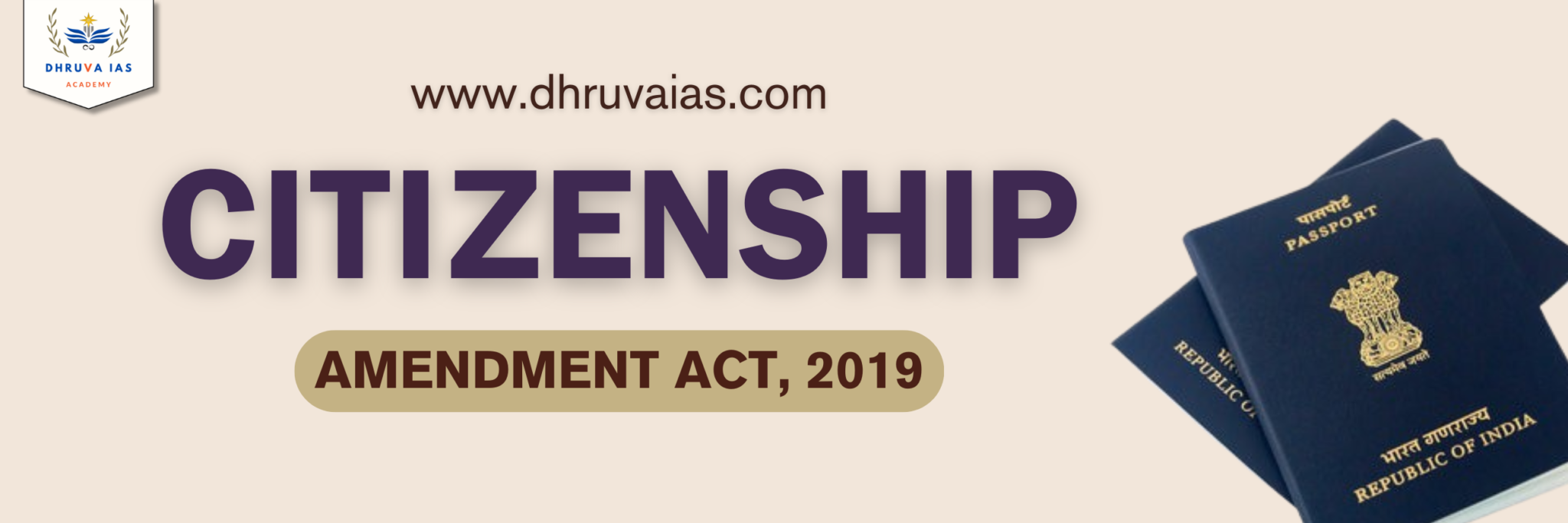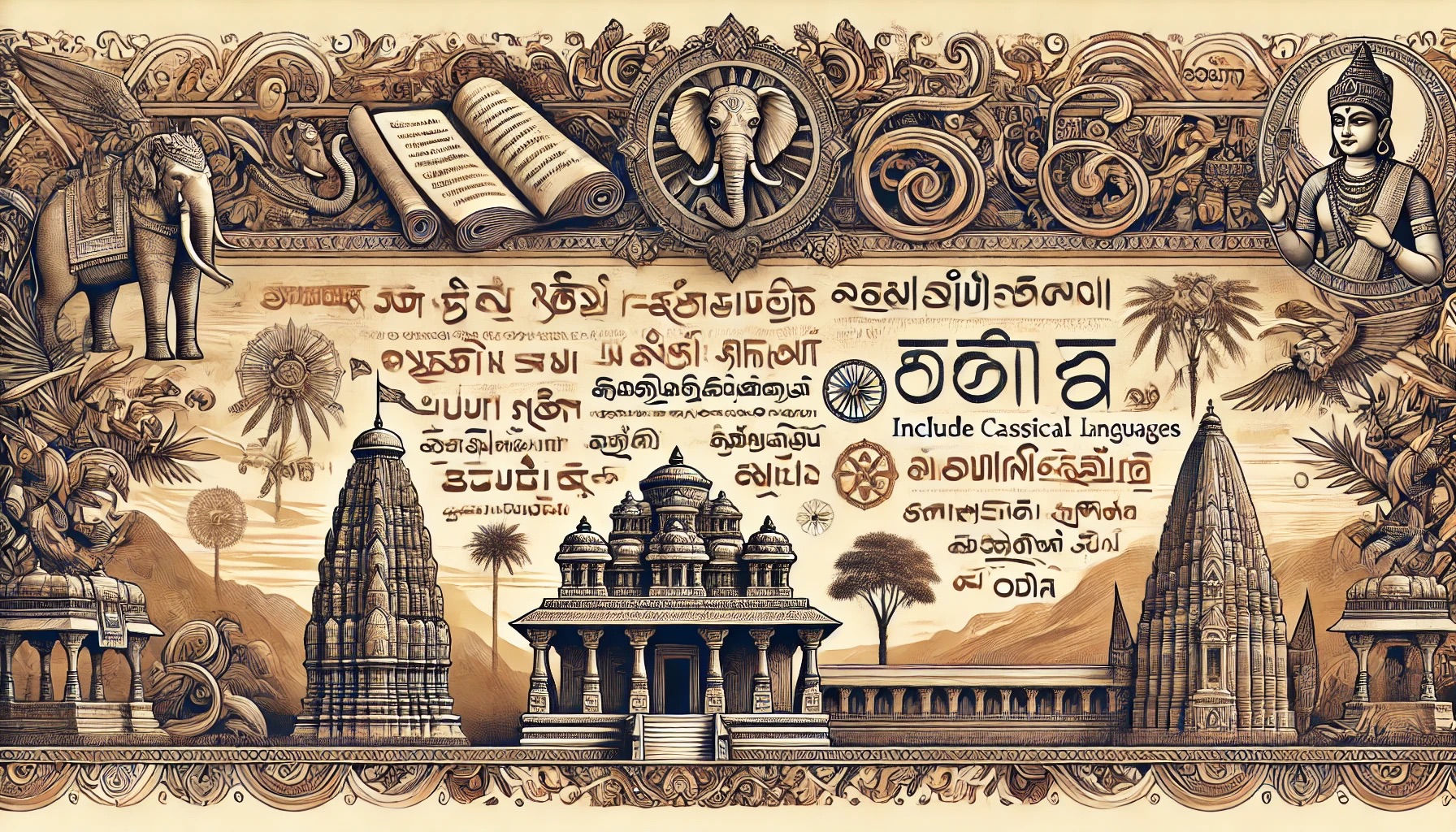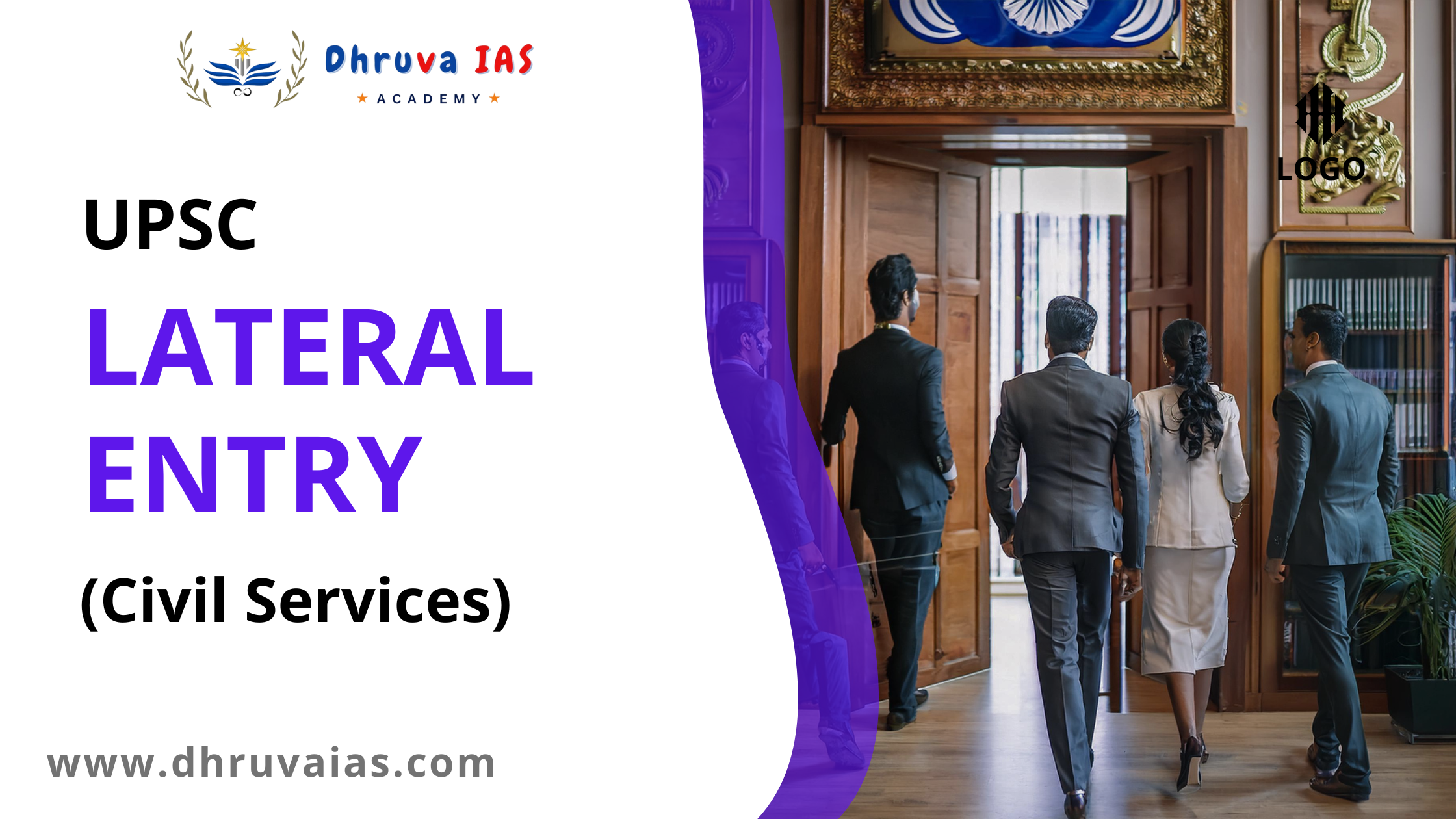
Understanding of Citizenship Amendment Act, 2019: Implications & Controversies
Background of the Citizenship Amendment Act, 2019
The Citizenship Amendment Act, 2019, commonly referred to as the CAA, was passed by the Indian Parliament on December 11, 2019. The Act aimed to grant Indian citizenship to persecuted minorities from neighboring Muslim-majority countries such as Pakistan, Bangladesh, and Afghanistan. To comprehend the significance of this Act, it is crucial to delve into the historical context of citizenship laws in India.

Introduction
Citizenship Amendment Act, 2019 provides citizenship to members of specific religious communities – Hindus, Sikhs, Buddhists, Jains, Parsis, and Christians – who arrived in India before December 31, 2014. This selective approach marked a departure from the traditional framework of Indian citizenship, focusing on religious persecution as a basis for naturalization.
Historical Context of Citizenship Laws in India
India’s citizenship laws have evolved over the years, reflecting the country’s complex social fabric and diverse population. The Citizenship Act of 1955 delineated the principles of Indian citizenship based on birth, descent, registration, and naturalization. The CAA introduced a novel element by considering religious identity as a criterion for granting citizenship, leading to a contemporary debate on the nature of Indian secularism.
Key Objectives of the Citizenship Amendment Act
The primary goal of the CAA was to expedite the citizenship process for religious minorities facing persecution in neighboring countries. By providing a legal framework for their naturalization, the Act aimed to offer refuge and protection to vulnerable communities seeking sanctuary in India.
Eligibility and Exclusions under the Citizenship Amendment Act, 2019
The CAA outlined specific criteria for eligibility for citizenship while also excluding certain groups, which sparked widespread controversies and debates regarding its implications.
1. Criteria for Eligibility for Citizenship
- Religious Minority: The applicant must belong to one of the specified religious minorities, including Hindus, Sikhs, Buddhists, Jains, Parsis, and Christians.
- Countries of Origin: The applicant must have come to India from Pakistan, Bangladesh, or Afghanistan.
- Cut-off Date: The applicant must have entered India on or before December 31, 2014.
- Persecution or Fear of Persecution: The applicant must have faced religious persecution or have a well-founded fear of persecution in their country of origin due to their religion.
2. Exclusions and Controversies Surrounding Excluded Groups
One of the major contentions surrounding the CAA pertained to the exclusion of Muslim communities from its purview. Critics argued that the Act discriminated on the basis of religion, negating the secular ethos enshrined in the Indian Constitution. Moreover, concerns were raised regarding the omission of certain tribal and indigenous groups in Assam and other northeastern states, fueling apprehensions about demographic changes and cultural identity.
3. Impact of the Act on Assam and Northeastern States
The implementation of the CAA in Assam and the northeastern states triggered widespread protests and unrest, reflecting the diverse socio-cultural milieu of the region. The indigenous populations voiced their anxieties about demographic shifts and potential threats to their linguistic and cultural heritage, leading to a protracted struggle for protecting their distinct identities.
Criticisms and Opposition to the Citizenship Amendment Act, 2019
The CAA elicited vehement criticisms and opposition from various quarters, encompassing human rights concerns, political ramifications, and international reactions.
1. Human Rights Concerns and Violations
- Fundamental Human Rights Violations:
- Critics pointed out inherent human rights violations in the CAA.
- They cited discriminatory practices and exclusionary provisions.
- Contravention of Principles:
- The Act was criticized for contravening the principles of equality and non-discrimination.
- Arbitrary delineation of citizenship based on religious criteria was highlighted.
- Undermining Constitutional Safeguards:
- Alarms were raised about the undermining of constitutional safeguards and democratic values.
- Critics expressed concerns over potential erosion of fundamental rights and freedoms.
2. Political and Social Ramifications
- Polarizing Effect:
- The CAA polarized opinions, leading to political divisions and social fissures.
- Communal tensions were exacerbated, disrupting inter-community harmony.
- Test of Secularism and Pluralism:
- The Act became a litmus test for India’s commitment to secularism and pluralism.
- Broader debates on the rights of marginalized communities and the importance of inclusive citizenship policies were ignited.
3. International Reactions and Implications
- International Scrutiny:
- India’s citizenship policies faced scrutiny from the international community following the CAA.
- Concerns were raised about the potential impact on religious freedom and minority rights.
- Reservations and Concerns:
- Several countries and human rights organizations expressed reservations.
- Concerns were raised regarding the discriminatory nature of the Act and its implications for democratic norms and global solidarity.
Government Response and Justifications for the CAA
The Indian government defended the CAA on grounds of national security, humanitarian considerations, and constitutional validity, garnering support from certain community groups and legal scholars.
1. National Security and Refugee Crisis Argument
Proponents of the CAA underscored its significance in addressing the plight of persecuted minorities, framing it as a humanitarian response to a refugee crisis. The government contended that providing citizenship to vulnerable communities was essential for safeguarding their rights and ensuring their integration into the Indian social fabric.
2. Support from Certain Community Groups
Certain community groups welcomed the CAA, viewing it as a progressive step towards extending protection to persecuted minorities and promoting religious pluralism. The Act resonated with the aspirations of communities facing persecution and discrimination, fostering a sense of inclusivity and solidarity among marginalized sections.
3. Legal Framework and Constitutionality of the Act
The constitutional validity of the CAA came under scrutiny, with critics challenging its compliance with the principles of equality and secularism enshrined in the Indian Constitution. Legal experts debated the implications of the Act on citizenship rights, emphasizing the need for judicial review and constitutional safeguards to uphold the rule of law.
Future Implications and Unresolved Issues Related to CAA
As the CAA continues to engender debates and discussions, several unresolved issues and future implications underscore the complexities of India’s citizenship policies.
1. Impact on Minorities and Religious Freedom
The CAA’s impact on minority communities and religious freedom remains a contentious issue, with concerns lingering about the long-term consequences of sectarian divisions and communal discord. Safeguarding the rights of all religious groups and upholding the principles of secularism are imperative for fostering social cohesion and pluralistic ethos.
2. Potential Amendments and Legal Challenges
The calls for amending the CAA to address the exclusion of certain groups and rectify constitutional discrepancies reflect the need for legislative reforms and policy revisions. Legal challenges to the Act underscore the significance of judicial oversight and procedural fairness in adjudicating citizenship disputes and protecting individual rights.
3. Shifting Political Landscape and Public Opinion
The evolving political landscape in India and the changing public opinion on the CAA underscore the dynamic nature of citizenship discourse in the country. Public debates and civil society activism continue to shape the contours of citizenship policies, emphasizing the importance of inclusive and participatory governance in addressing diverse societal concerns.
FAQs
The main purpose of the Citizenship Amendment Act, 2019, is to provide expedited citizenship to persecuted minorities from neighboring Muslim-majority countries.
Individuals belonging to Hindu, Sikh, Buddhist, Jain, Parsi, and Christian communities from Pakistan, Bangladesh, and Afghanistan before December 31, 2014, are eligible for citizenship under the CAA.
The major criticisms of the CAA include allegations of religious discrimination, violation of human rights, and erosion of secular principles enshrined in the Indian Constitution.
The international community has expressed concerns about the discriminatory nature of the CAA and its implications for minority rights and religious freedom, urging India to uphold democratic norms and constitutional values.
Key legal challenges and unresolved issues related to the CAA pertain to its constitutionality, exclusionary provisions, and potential amendments to address concerns about human rights violations and discriminatory practices.
Mains Practice Questions
Sl. No | Questions |
|---|---|
1. | How does the Citizenship Amendment Act, 2019, intersect with both social and economic dynamics in India, particularly regarding its impact on marginalized communities and their access to resources and opportunities? |
2. | In what ways does the Citizenship Amendment Act, 2019, challenge traditional notions of citizenship and belonging, especially in a globalized world where transnational identities and diasporic communities are increasingly prevalent? |
3. | How do emerging socio-political movements and grassroots activism intersect with the discourse surrounding the Citizenship Amendment Act, 2019, and what role do civil society organizations and advocacy groups play in shaping public opinion and influencing policy outcomes? |
4. | Can the Citizenship Amendment Act, 2019, serve as a catalyst for broader discussions on citizenship rights, identity politics, and the evolving nature of democracy in the 21st century, both within India and on the global stage? |
5. | In what ways does the implementation of the Citizenship Amendment Act, 2019, raise ethical and technological concerns, particularly regarding issues of privacy, surveillance, and discrimination in the processing of citizenship applications? |
Company
Features
Most Recent Posts
- All Post
- Current Affairs
- Ethics
- Sociology
- Back
- Case Studies
- Back
- Daily Current Affairs
Category
Tags
- Arjuna Award
- Bengali
- Bharat Ratna
- Bureaucracy
- Case Studies
- Chandrayan-3
- Civil Services
- Classical Languages
- Current Affairs
- Defence
- Ethics
- Family
- Functionalist
- IN-SPACe
- ISRO
- Joint Military Exercise
- Lateral Entry
- marathi
- Marxist
- National Awards
- National Space Day
- NATO
- Pali
- Prakrit
- Psychiatrist
- Russia-Ukraine war
- Sociology
- Space
- Sweden
- Symbolic Interactionist
- Tamil
- Telugu
- UPSC
- UPSCprelims


